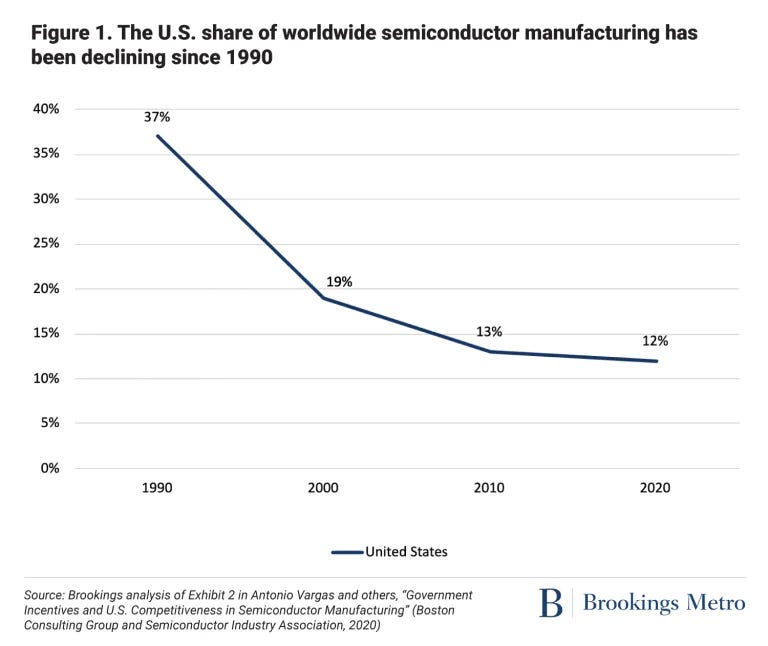The U.S. Needs More Chip Fabs
The U.S. Semiconductor industry abandoned domestic production to drive profits. It will take more than $52B of federal funding to build it back better.
A Full Wafer of Intel Quantum Computers. Source: Steve Jurvetson from Menlo Park, USA
The 21st century runs on chips. And right now, the chips are down.
At this point, the global chip shortage is old news-it started before the first COVID outbreak and seems likely to extend well beyond it. The drought affects everything from graphics cards to automobiles. It also highlights how vulnerable the U.S. economy is to the global supply chain. The good news is that Congress has moved. The Senate passed $52B in funding for the semiconductor industry in June of 2021; the House followed up in February with a similar bill. They are being reconciled now, but the real question is: Will it be enough to dig us out of our hole?
Over the last 30 years, the semiconductor industry abandoned the idea of making chips in the U.S. In 1990, The U.S. produced 37% of the world’s semiconductors. Today, it produces 12%. Without incentives, the domestic production capacity collapsed.
In fact, it has gotten to the point where the U.S. no longer has the capacity to build the latest generation of chips. In 2021, Intel was forced to outsource the manufacturing of its latest generation chips to TSMC for the first time. Only TSMC could make the latest generation of 7nm chips. Intel is still at 10nm.
This didn't happen by accident. Most countries recognize the importance of the semiconductor industry and use tax dollars to keep it local. China has spent more than $50B to build its capacity over the last 20 years. The U.S. has spent nothing on the federal level.
The CHIPS Act, creatively titled the Creating Helpful Incentives to Produce Semiconductors Act, is designed to fix that. Indeed, it is one of the few bills to draw bipartisan support. Even opponents of stimulus spending and industrial policy have to admit the country’s lack of domestic chip production is a competitive and military liability. The $52B of funding includes a combination of grants and loans from the federal government to subsidize some of the cost of building and renovating semiconductor plants.
Unfortunately, the bills contain conflicting priorities for the National Science Foundation that are splitting down party lines. Both bills included funding for R&D, but it is spent differently. The Senate bill has $29 billion to focus on AI, Semiconductors, and Robotics. The house allocates $13.3B for climate change, environmental sustainability, and economic inequality.
We can only hope that some of those lawmakers doing the reconciling realize these priorities are not mutually exclusive. AI can drive environmental solutions; robots can fight climate change.
There are some legitimate critiques of the CHIP Act. The most basic is that the industry has spent more than $100M lobbying Congress in the last two years and now stands to collect $52B in incentives, a pretty good rate of return. It is almost as if Moore's Law applied to lobbying dollars.
Second, companies like Intel, Qualcomm, and Global Foundries are already profitable. They decided to off-shore their manufacturing for profit; there is little to stop them from taking these funds and then doing stock buyback programs to return the value to shareholders. Senator Bernie Sanders has suggested the government get a cut of those profits.
Nonetheless, it seems the country needs domestic chip production capacity. The money is allocated. Let’s hope Congress can cut a deal soon.
Today Bits
The problems with Elon Musk’s plan to open-source the Twitter algorithm
Minneapolis police used fake social media profiles to surveil Black people
Meta Machined
Careful readers will notice I have been playing a little fast and loose with my deadlines. This will not come as a shock to people who have worked with me in the past. My top priority is delivering news and information that has value and it has to be worth your click. Sometimes that takes an extra day. Today is one of those days. Anyway, feel free to give me a hard time about it in the comments or at dc@dancosta.com.






